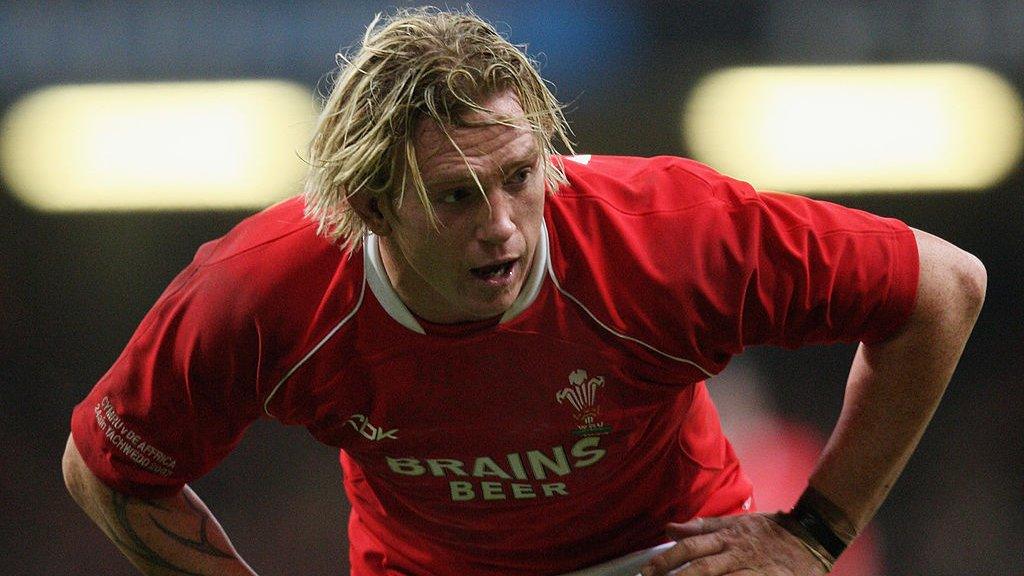Players told to 'sit it out' under new concussion guidance
- Published
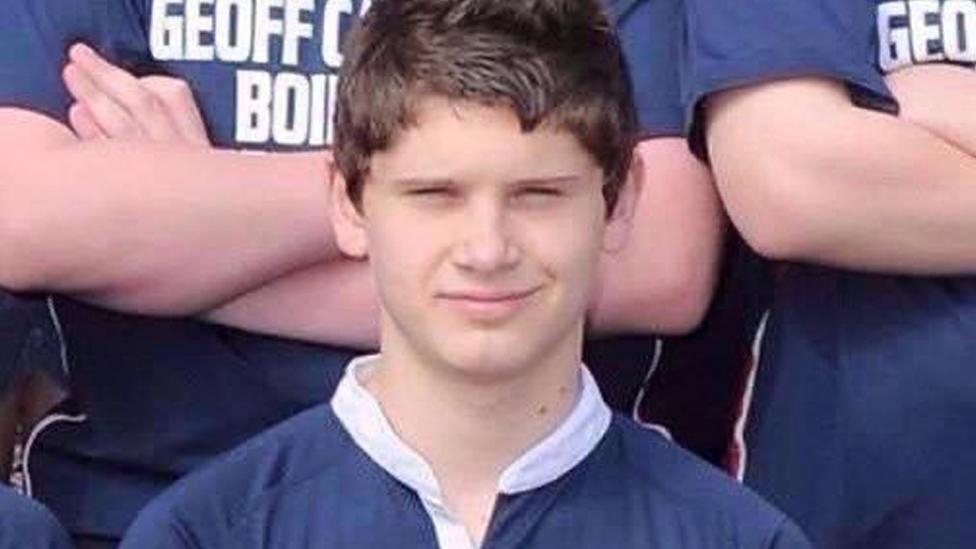
Ben Robinson died from "second-impact syndrome", a coroner found
Anyone with suspected concussion must be immediately removed from football, rugby and other sports and rest for at least 24 hours, under new guidance for grassroots clubs.
It says the NHS 111 help-line should be called and players should not return to competitive sport for at least 21 days.
The UK-wide guidelines are aimed at parents, coaches, referees and players.
Its authors say a "culture change" in the way head injuries are dealt with is needed.
"We know that exercise is good for both mental and physical health, so we don't want to put people off sport," Prof James Calder, the surgeon who led the work for the government, said.
"But we need to recognise that if you've got a head injury, it must be managed and you need to be protected, so that it doesn't get worse."

What is concussion?
Concussion - a traumatic brain injury affecting mental function - can alter the way someone thinks, feels and remembers things.
Only about 10% result in being knocked out and losing consciousness.
Effects are usually temporary and most people recover fully with rest.

The guidance, drawn up by a government-appointed panel of sports-medicine experts, is based on work in Scotland, which has had its own official recommendations, external in place since 2015.
It says anyone with a head injury must be removed from playing and not participate in any further exercise or work activity until they have been checked by a onsite health professional or contacted the NHS 111 help-line.
If the player displays "red-flag" symptoms - such as loss of consciousness, amnesia or difficulty speaking - they must be urgently assessed at the side of the pitch by a medic or taken to an accident-and-emergency (A&E) unit.
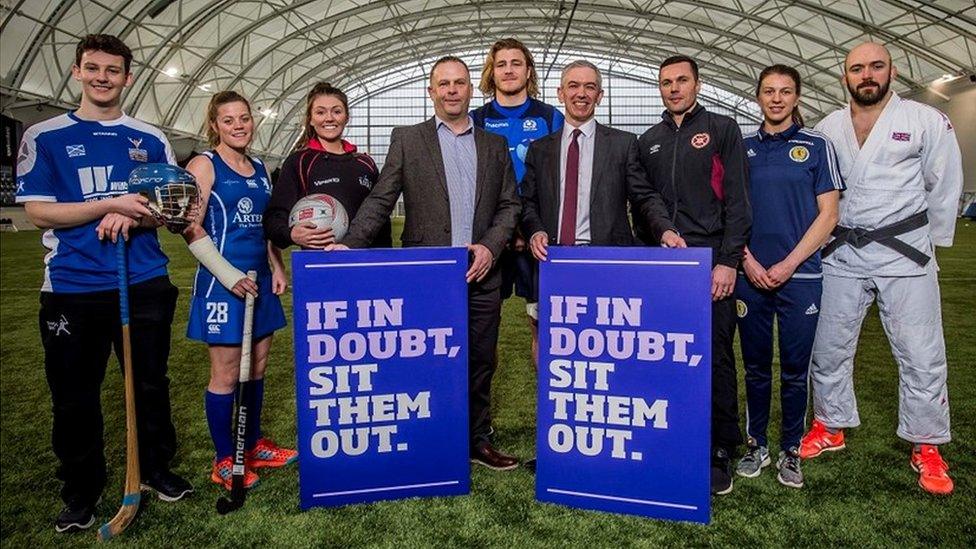
Peter Robinson (fourth left) has been campaigning for safer management of head injuries in sport
Work to draw up new recommendations for all sports began after the death of Ben Robinson, 14, from Carrickfergus, County Antrim, in 2011, who collapsed near the end of a school rugby match.
His death had resulted from "second-impact syndrome", a rare condition where the brain swells rapidly after suffering multiple concussions in a short period of time, a coroner found.
Ben's father, Peter, has been campaigning to raise awareness of the risks ever since.
"Concussion is a brain injury and all concussions are serious," he told BBC News.
"Most people recover to 100% and they are back playing their sport. But it's the mismanagement of that injury that can lead to tragic circumstances, as with Ben's case.
"There's a risk in all sports. But with greater awareness and education, we are moving forward and making it a safer place."
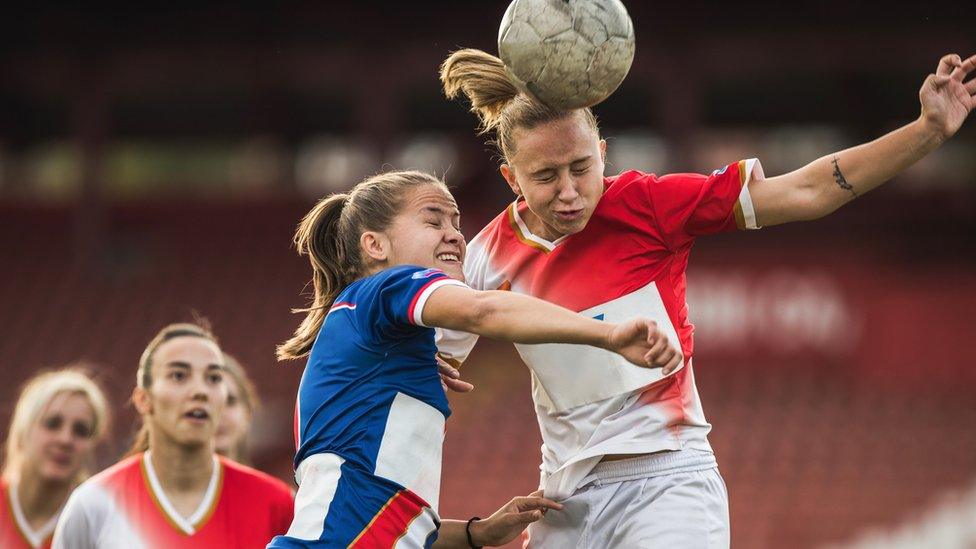
For 24 hours after being removed from the game, the new guidance says, the injured player must not:
be left alone
drink alcohol
drive a car
The advice is also to minimise smartphone and computer use for at least 48 hours, as staring at a screen can lengthen recovery time.
The panel had had "big debates" about how long players should remain on the sidelines, amid concerns some may cover up or disguise the extent of their injuries, Prof Calder said.
"There has now been a realisation that washing someone with a magic sponge is not the right approach. If you feel there has been a concussion, that player should be removed," he said.
"'If in doubt, sit them out,' is the new mantra."
Professional rugby
The NHS and most sports authorities do not routinely collect data on the number of concussions in grassroots sport.
But the charity Headway estimates 1.4 million people attend A&E in England and Wales with some type of head injury each year, with 95% of those classed as mild.
Data from the Rugby Football Union (RFU) suggests a team of 15- to 18-year-olds will have a player concussed once in every 10 games on average, rising to one in every two or three in professional rugby.
The new national guidance is designed as a base set of recommendations for all sports, which individual governing bodies can then add to if required.
The RFU already runs its Headcase programme, external to raise awareness of concussion, while rules lowering the legal tackle height in community rugby are due to come into force from July.
The Football Association introduced its own concussion guidelines in 2015, external. More recently it said under-12s should not be taught to head balls in training, external, while in England the advice in the adult game is fewer than 10 "maximum-force" headers in practice each week.
Headway's chief executive, Luke Griggs, described the guidelines as an "important step" but warned they needed to be accompanied by a full public health campaign.
"This cannot start and stop with a document put on a government website or emailed to clubs," he said.
"This has to be a hearts and minds campaign to get people to understand the very important reasons for these guidelines."
Sports Minister Stuart Andrew said: "One of the things we'll now be doing is reviewing how well this guidance has been absorbed and understood.
"If there are tweaks we need to make, then of course we will do that."
Follow Jim on twitter, external.
- Attribution
- Published6 March 2023
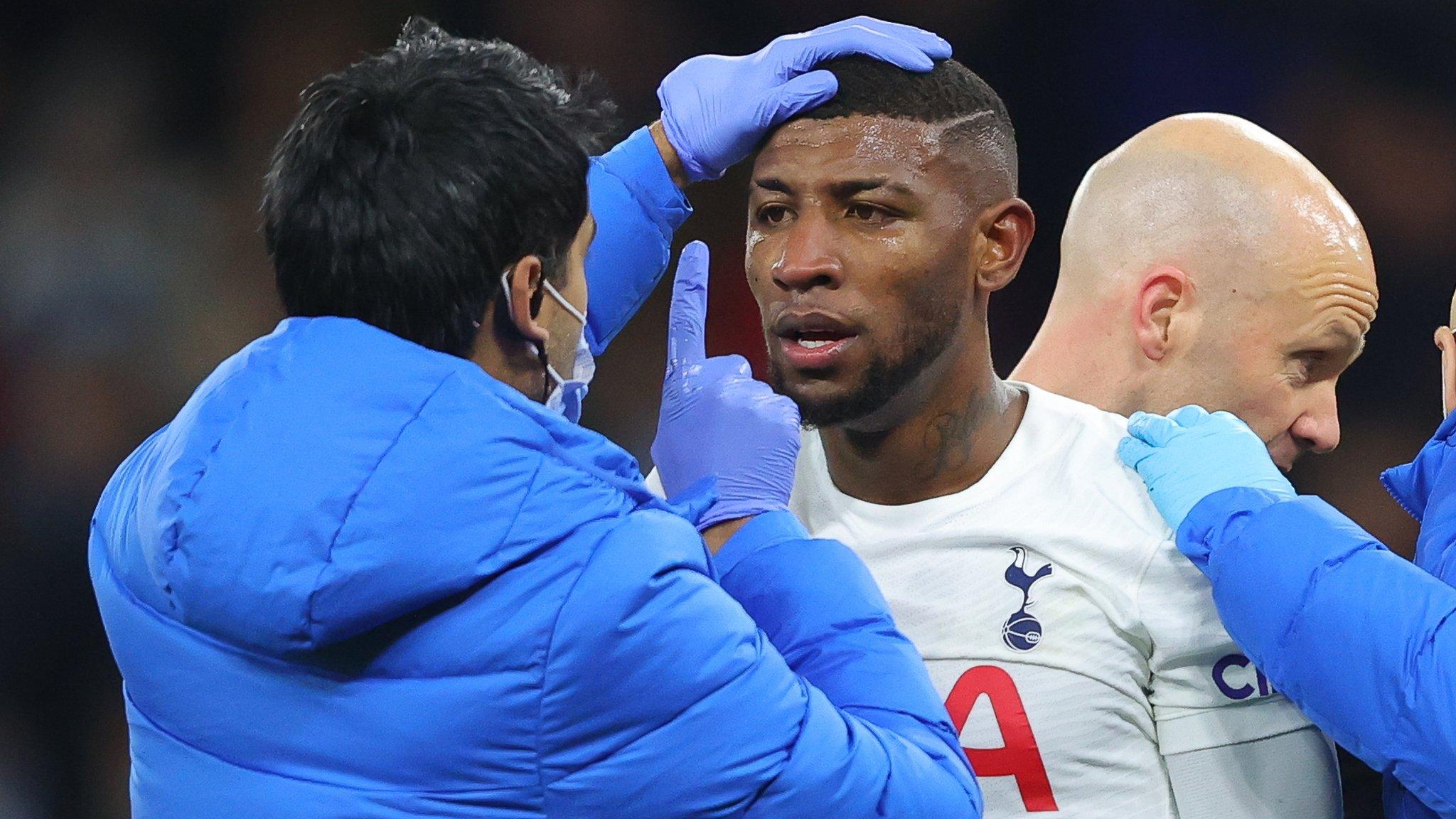
- Attribution
- Published16 September 2022
